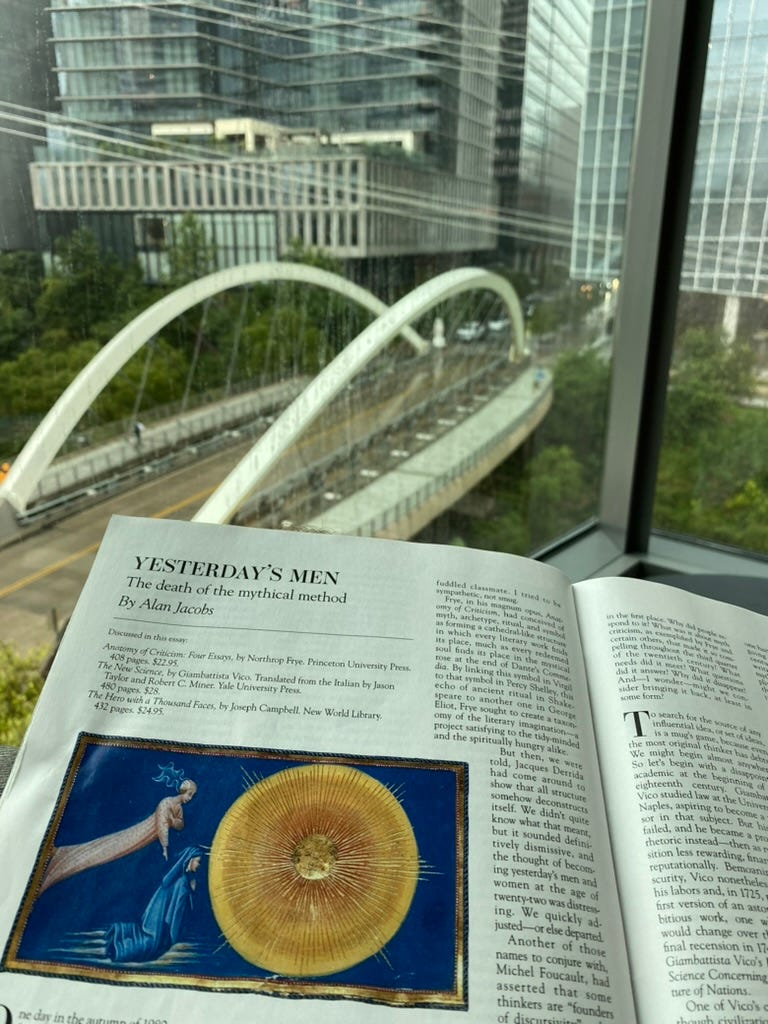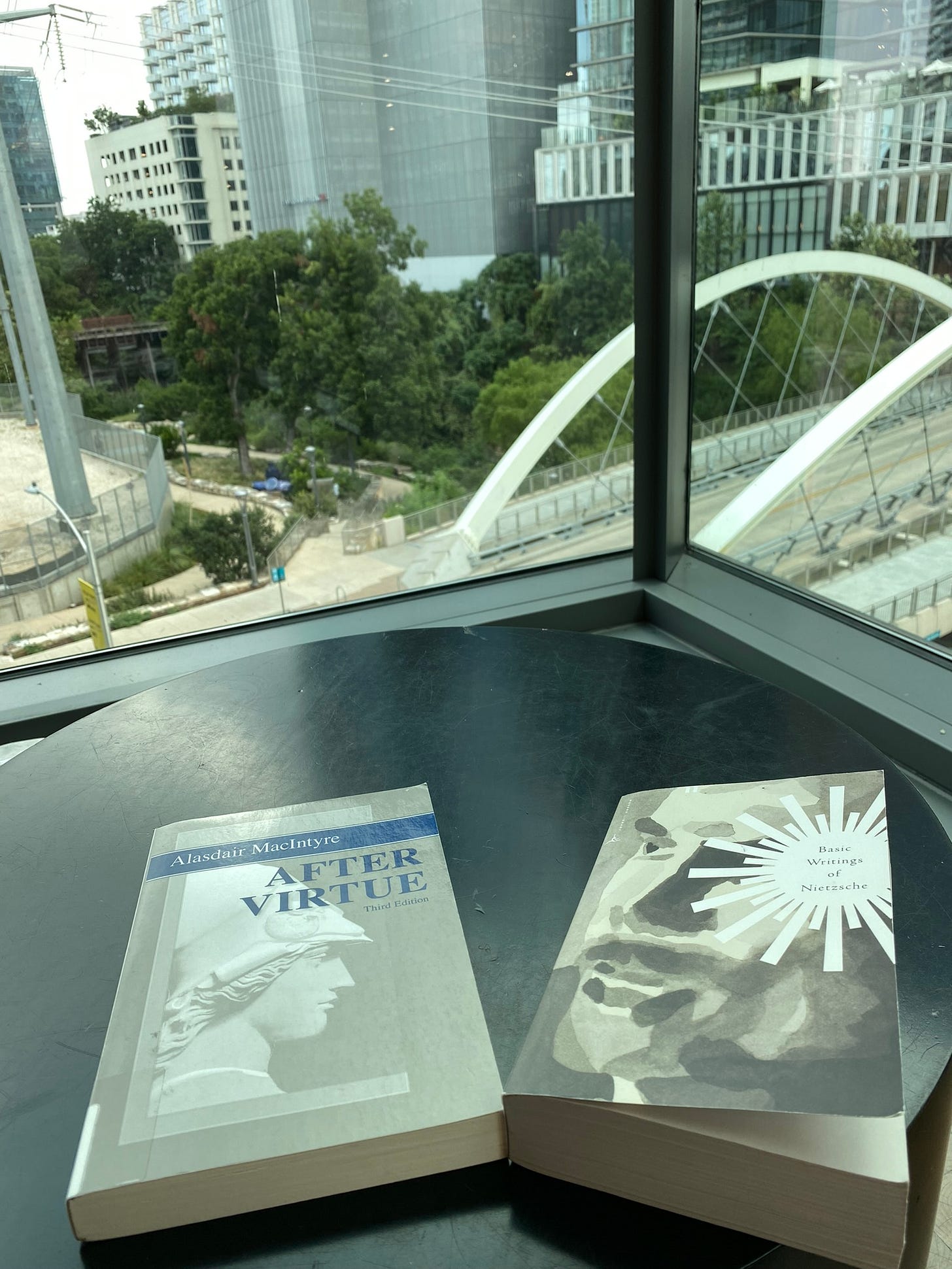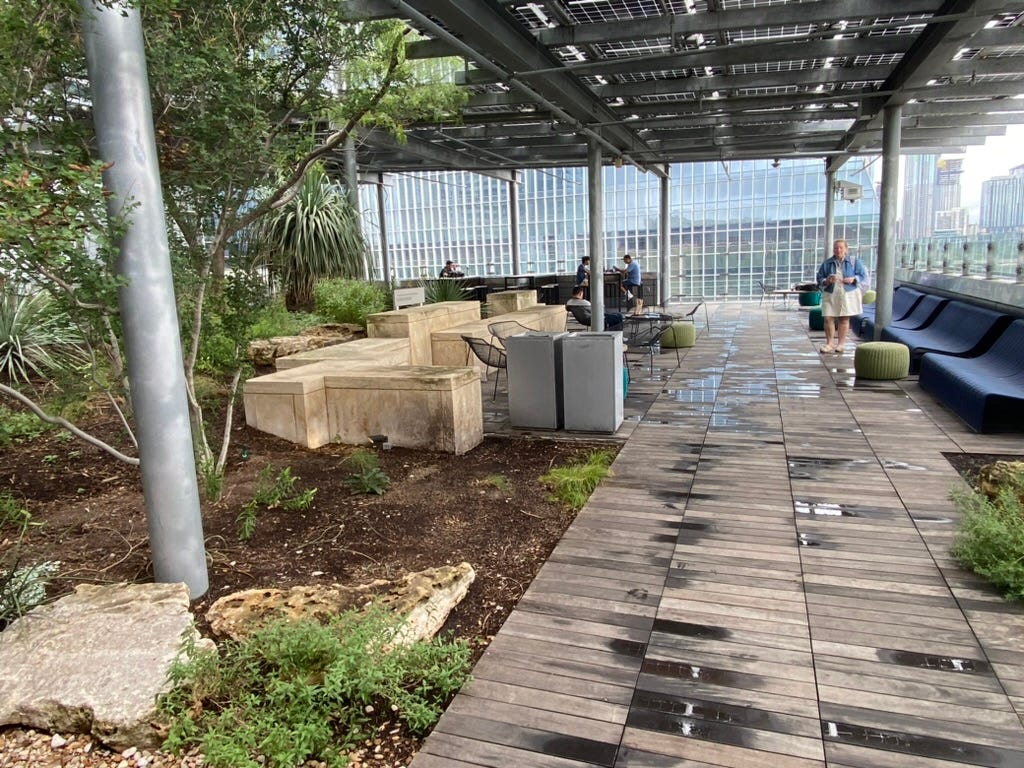Robbie Rambles | July 26, 2024
I hear they eat tacos for breakfast.
Hi friends,
Greetings from Austin, TX, where the Saps are finally settling. It's been a turbulent couple of months, but we're here, we're healthy, and we're whole.
Long story short, we've discovered that rural life is not for us. The house we were moving into needed more work than we anticipated. The church plant I teased in my previous missive didn't pan out. I was laid off from my job. Like I said, it's been turbulent.
But God provides. I've accepted an offer for a new job I'll be starting in August. And, to top it all off, we're eagerly awaiting the arrival of Sap number 2, in January 2025.
I’ve heard it said that moving, losing/starting a job, and welcoming a new child are considered to be some of the most significant stressors a person can experience. We've been tackling all three. And now we'll be doing it in Austin.
Until about two months ago, I had never considered Austin to be a possibility. It has a well-deserved reputation as being expensive, especially relative to the rest of Texas. But, it turns out, there are still pockets of the city where homes don't have list prices resembling California. We were delighted to discover this.
The "vibes" of Austin feel great right now (speaking as a newcomer). On an economic and technological level, it feels like a place that is practicing American dynamism. The people are consistently warm and welcoming. The food is unparalleled. Many bookstores and comic shops. Lots to do outdoors. It is the most family-friendly city I've ever been to — multiple breweries/coffee shops with playgrounds and spaces for kids to just run around while the parents chill. In addition to the robust music scene, there's also comedy, podcasting, and Jiu Jitsu. Sometimes these things overlap! People here seem genuinely happy and willing to have fun. Whether or not it's part of a larger vibe shift happening in our nation, I do not know. All I know is that I'm here for it.
I just started reading Michael Lind's Land of Promise: An Economic History of the United States. I've been wanting to read it for a while, mostly because I'm wanting to educate myself about economics more generally. But it also seemed germane to our present moment. It was published in 2012, when the Republican party was still dogmatically beholden to policies around laissez-faire capitalism that brooked no dissent. Now, with figures like J.D. Vance rising through the ranks, the Overton window of economic policy has shifted to become more nationalist, or, Hamiltonian, in character. According to Lind, the Hamiltonian economic vision for America was one of strong centralized industry and banking, as opposed to the decentralized, agrarian version of Jefferson. Neither of these visions map perfectly onto our (post?)neo-liberal moment, but I think their intellectual undercurrents continue to inform policy debate to this day. Lind is unapologetically Hamiltonian, and I appreciate his candor. The point of all this though isn't to advocate for one policy position over another, but more to show how looking to the past can give a more nuanced and comprehensive picture of the present.
I've recently violated the POSSE principal of the IndieWeb movement by publishing some shortform writing in LinkedIn and Twitter/X. Here are links to some stray thoughts.
Following on to Andrew Chen's thoughts about routines and 10x work
Impressed at Cloudflare's speed in addressing a vulnerability
I'm wrapping up this entry from the Austin Public Library, which might be the coolest library I've ever visited. It feels futuristic and forward-thinking without being sterile or alienating. I've sat in the exact spot on two separate occasions, and don't want to leave.
Also, check out this rooftop garden.
That's all I've got for now. Peace, love, and breakfast tacos be with you all.
Robbie





Praying for you guys and all that you have going on! Miss you all! And enjoy a breakfast taco or two for me!